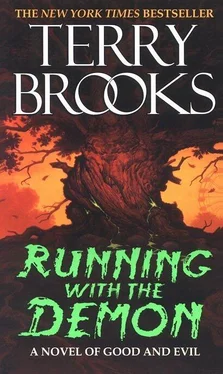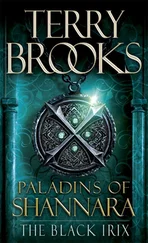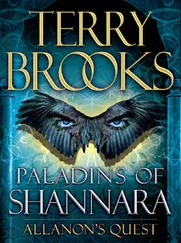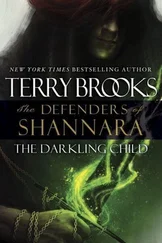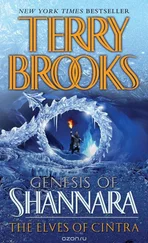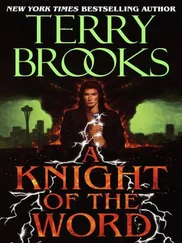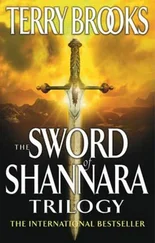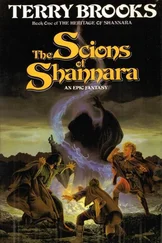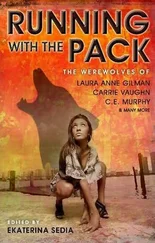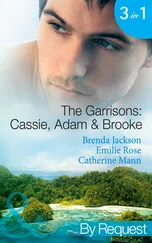He comes up against a firefight at an intersection in the streets and spins quickly back into a shadowed niche to hide from the combatants. Automatic weapons riddle wooden doors and pock brick walls and take the lives of everyone caught in their field of fire. The feeders frolic through the carnage, leaping and twisting with unrestrained glee, feeding on the rage and fear of the combatants. Killing is the most powerful form of madness and therefore the feeders'strongest source of food, and they are drawn to it as flies to blood. No sounds come from them, nor is any form of recognition accorded them, for they are a silent, invisible presence. But in their lantern eyes Ross sees the pleasure they derive from the dark emotions the killing releases, and he is reminded of the Furies in the old Greek myths, driving insane those who had committed unconscionable crimes. If there were Furies in real life, he thinks, they would be mothers to these feeders.
When the fighting dies away, he moves on, running swiftly toward the confluence of freeways that lead into the city from the west, anxious to find his way clear. Night slips down about him like window shades drawn against the smoky, fiery light of the city's destruction. The smells that assail his nostrils are acrid and rank–charred flesh and blackened blood. Disease will follow, and many of those who do not die in the fighting will die in the aftermath. Thousands are driven from this city into the wilderness. How many will survive to take refuge somewhere else?
He reaches the arterials winding into the main east/west freeway, but the attackers throng from all quarters before him, lining the four–lane, gathering for an unknown reason. He edges back cautiously and works his way down the backyards of houses and the shattered glass fronts of businesses to where those who celebrate do not mass so thickly. He finds a rise on which an abandoned housing development is settled, and he enters a house that gives him a clear view of the freeway leading in. From an upstairs window, he looks out on a grand procession approaching from the west. He uses his binoculars to get a clearer look, a cold suspicion beginning to surface.
There, on the buckled, cracked ribbon of concrete that spreads like a length of worn pewter into the horizon, he sees the first lines of captured humans, shackled and bent as they shuffle forward in long trains, their lives spared so that they may serve as slaves. Cages on wheels contain those who will be accorded a special death. Heads strung on ropes and mounted on poles attest to the number who have found death already.
Then he sees her. She rides on a flatbed wagon pulled by several dozen of those she has subjugated. She sits amid the demons who are her favorites, tall, regal, and as cold as death, queen of the destruction she surveys. Her history is legend. She was a world–class athlete who medaled twice in the Olympics. She became an activist, first for reform, later for revolution, gifted with charismatic speaking powers. She was revered and trusted by everyone, and she betrayed them all. Along the freeway, the once–men who serve her go quiet and bow their heads in obeisance. John Ross feels his stomach knot. Even from where he hides he can see the emptiness in her eyes. She is devoid of emotion, as dead inside as the creatures she has crushed in her passing. She is a pivotal figure in the Void's implacable war against the Word. She is John Ross's greatest failure.
He knew her when she was different, many years ago, when there was still time to save her.
He knew her as Nest Freemark.
MONDAY, JULY 4
Nest Freemark woke to the sound of voices, hushed and cautious outside her bedroom door. The big floor fan had been turned off and shoved to one side and the door closed, so she could not see who was there. She tried to pick up on what was being said, but the words were indistinct. She lay facing the door, staring at its familiar paneled frame, the bed–sheet pulled up to her chin, her fists clenched about the wrinkled border. She did not know when she had finally fallen asleep or how long she had slept. The room's light was gray and muted, and the temperature cool, so she thought it might only be dawn. But when she looked at her bedside clock, she saw it was almost noon.
She took a deep breath and exhaled slowly, then turned over to look out the window. A small section of the sky was visible through the curtains. Clouds drifted slowly across the blue expanse, and the sun cast their shadows on the earth and marked their passing with changes in the light. The breeze that wafted through her open window smelled damp and fetid.
Had it rained during the night? Her thoughts drifted. Gran had always loved the sound of falling rain.
Her eyes teared, and she brushed at them quickly. She would not cry again–not right away. She had cried enough. She felt something scratchy against her bare elbow, and she reached beneath the covers to extract Gran's crumpled note. She had found it beneath her pillow when her grandfather had finally gotten her to bed–after they had taken Gran away, after all the policemen, medics, firemen, and neighbors had gone, after she had refused over and over again to go somewhere else for the night. Alone in the darkness of her room, trapped in the downward spiral of her sadness and rage, she had curled into a ball atop her sheets, the fan blowing cool air over her heated skin, her eyes scrunched tight against her horror and misery, and clutched her pillow to her face. That was when her fingers had come upon the note. She had pulled it out, opened it, and stared at it in disbelief. The note was from Gran. She had read it so many times since that she knew the words by heart.
When he comes for you, use your magic. Trust Wraith.
Love you. Gran
She looked at the writing again now, trying to gain some new insight, to find hidden meaning behind the words. But the note was straightforward and the warning it contained unmistakable. Gran had written the note in the moments before she died. She had written it, in all probability, knowing she was going to die. Nest had thought it all through carefully, looking it over from every conceivable viewpoint, and argued the possibilities with herself until she was certain. The police and the firemen and the medics and the neighbors might agree among themselves that Gran was an old drunk who saw things that weren't there and finally drank so much she took out a shotgun to blow away her phantoms and brought on the heart attack that killed her. They might dismiss her with a shrug, a few words of sympathy, and an unspoken conviction that anyone crazy enough to go around shooting holes in trees and fences was just asking for trouble. They might sleep a whole lot better living with that explanation than with the truth. But the fact remained that the truth was something else entirely. Gran wasn't dead because she drank or she was crazy. She was dead because the demon had killed her.
I have enemies to eliminate.
Nest could still hear his words, spoken to her in the blackness of the caves, disembodied and remote and rife with malice. The demon had gone about the business of eliminating Gran quite deliberately. He had taken great pains to sidetrack everyone who might protect her, and then he had come for her. Nest knew it was so. She had never been so certain of anything in her life.
Now Gran was warning her, in the crumpled note she held in her hands, that the demon was coming for her as well.
Why?
Nest had pondered the question all night and she still didn't have an answer. She had assumed all along that the demon's interest in her was strictly secondary to his interest in Gran or John Ross, that he was using her to get to them. But Gran's note suggested that his intentions were more personal. Gran obviously believed the demon was after Nest as well. Use your magic. Trust Wraith. Gran could have written anything in those last few moments, but she had chosen to write this.
Читать дальше
